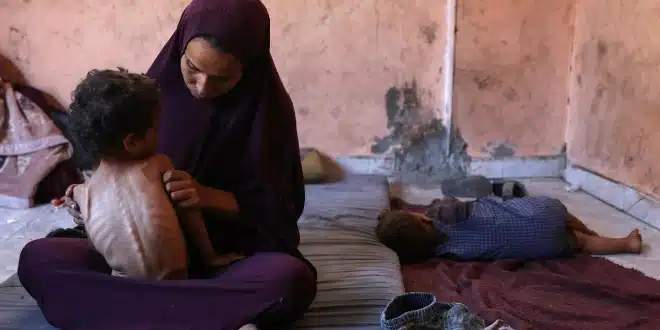As the conflict in Gaza approaches its second year, Hamas has officially responded to an Israeli offer for a 60-day ceasefire, reigniting hopes for a possible truce in a war that has devastated the region and created an escalating humanitarian catastrophe.
The latest move follows more than two weeks of indirect negotiations between Hamas and Israeli representatives, facilitated by mediators in Doha, Qatar. While international pressure mounts and aid groups issue dire warnings, the two sides remain locked in a prolonged stalemate, clinging to rigid demands that have thwarted previous ceasefire attempts.
Ceasefire Talks Continue Amid Stalemate
Hamas announced via Telegram that it had submitted its formal response to the ceasefire proposal, along with the views of other Palestinian factions, to the mediators. The office of Israeli Prime Minister Benjamin Netanyahu acknowledged receipt of the response and stated it is currently under review.
A source familiar with the discussions revealed that Hamas’s reply includes proposed changes to several key elements of the ceasefire plan — notably provisions concerning the delivery of humanitarian aid, specific areas from which Israeli forces must withdraw, and assurances for a permanent end to hostilities.
The talks, which began on July 6, aim to reach a truce agreement that would also involve the release of Israeli hostages captured during Hamas’s October 2023 assault. That attack triggered the current war, with 251 hostages taken by Hamas. Israel’s military believes 49 remain in Gaza, 27 of whom are presumed dead.
Despite prior temporary pauses in fighting, efforts to convert short-term truces into a sustained ceasefire have faltered. Israel remains adamant that Hamas must be dismantled militarily and politically, while Hamas insists on full Israeli withdrawal from Gaza, unhindered delivery of aid, and a binding commitment to end the war permanently.
Humanitarian Conditions Reach Critical Levels
The urgency for a breakthrough has been amplified by the worsening humanitarian crisis. Tedros Adhanom Ghebreyesus, head of the World Health Organization, warned that starvation in Gaza has become widespread. “A large proportion of the population of Gaza is starving,” he said, calling it “mass starvation — and it’s man-made.”
Over 100 humanitarian organizations have echoed these warnings, noting that aid deliveries remain severely limited. France has also voiced concern, stating there is a growing “risk of famine,” which it attributed to the blockade enforced by Israel.
Israel, however, has rejected these accusations, arguing that Hamas has obstructed the distribution of aid, hoarded supplies, or diverted them for profit. Israeli officials have maintained that they are allowing humanitarian deliveries into Gaza, but have blamed international aid agencies for delays in distribution.
On Thursday, COGAT — the Israeli defense body responsible for civil coordination in Palestinian areas — reported that roughly 70 food trucks had been unloaded at Gaza crossings, and more than 150 were collected by humanitarian organizations. However, over 800 trucks remained on the Gaza side, waiting to be picked up, COGAT added in a statement on X.
Aid agencies continue to cite logistical hurdles, such as restricted permissions and the ongoing conflict, as significant barriers to reaching the areas most in need. Meanwhile, the health ministry in Gaza confirmed that, in coordination with UNICEF, trucks loaded with medicines and medical equipment were being sent to hospitals on Thursday.
Mounting Casualties and International Pressure
The cost of the conflict continues to rise. According to Gaza’s health ministry, the Israeli military operation has claimed the lives of 59,219 Palestinians, the majority of whom were civilians. Meanwhile, the initial attack by Hamas on Israel in October 2023 led to the deaths of 1,219 people, also primarily civilians, based on figures compiled by AFP using official sources.
With the humanitarian situation rapidly deteriorating and diplomatic efforts still in flux, the United States has dispatched senior envoy Steve Witkoff to Europe this week for high-level consultations on both the ceasefire process and the creation of a humanitarian corridor.
Despite ongoing talks in Doha and the renewed push from international actors, the fundamental divide between Hamas and Israel persists. Until both sides can find common ground on their core demands, a lasting ceasefire remains elusive — even as conditions on the ground demand urgent action.


